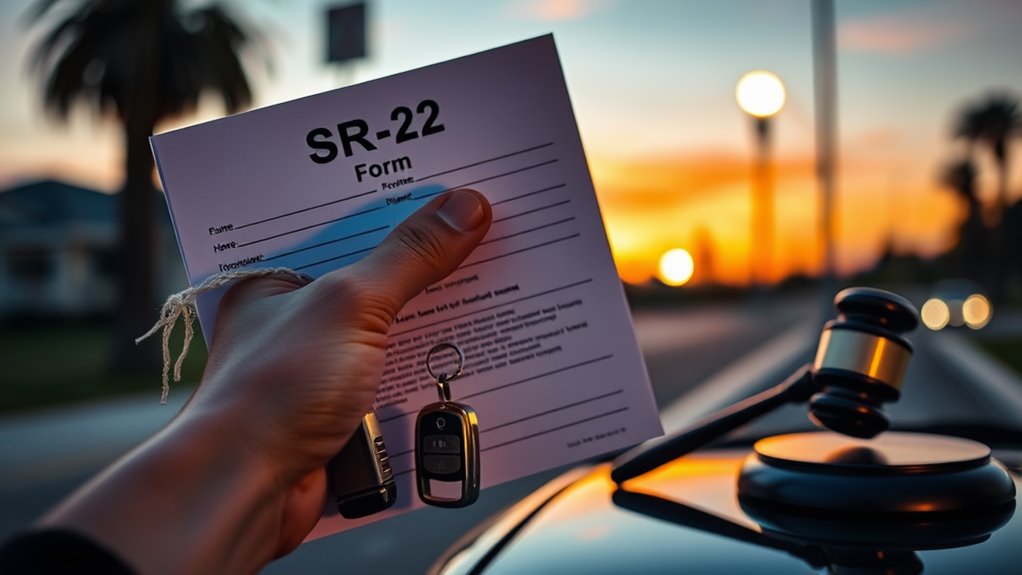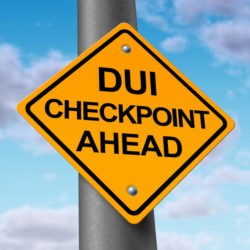Maneuvering the murky waters of insurance after a DUI arrest can feel overwhelming. With the right approach, you can regain control of your situation. Understanding the SR-22 requirement is just the beginning. By exploring non-standard insurance providers and comparing quotes, you can potentially save money. But what other strategies can help you manage those rising premiums? Let's uncover the essential tips that can make a difference.
Key Takeaways
- Understand SR-22 Requirements: An SR-22 is necessary to reinstate your license after a DUI and must be filed by your insurance provider.
- Shop Around for Quotes: Compare quotes from multiple insurers, as rates can vary significantly, especially for high-risk drivers.
- Consider Non-Standard Insurers: Look into non-standard insurance providers who specialize in high-risk coverage, as they may offer more accessible options.
- Raise Your Deductibles: Increasing your deductibles can help lower your monthly premiums, but ensure you can afford the higher out-of-pocket costs if needed.
- Take Defensive Driving Courses: Completing a defensive driving course can offer discounts on your premiums and improve your driving skills.
Understand the SR-22 Requirement in California

Understanding the SR-22 requirement in California is crucial for anyone facing a DUI conviction. An SR-22 isn't insurance itself; it's a certificate of financial responsibility that confirms you've got the minimum liability coverage mandated by law. After a DUI, you must have this form filed by your insurance company with the California DMV to reinstate your driving privileges. This requirement lasts for three years, and any lapse in coverage can lead to license suspension, resetting your SR-22 obligation. It's important to maintain continuous coverage during this period, as compliance can prevent further legal complications. Additionally, expect insurance premiums to rise, reflecting your status as a high-risk driver. Having an SR-22 indicates that you are viewed as a higher risk by insurance providers, which can lead to increased costs. Consequently, keeping a clean record can help mitigate costs in the future. Moreover, the SR-22 form must be submitted directly to the California DMV for verification of your insurance status.
Research Non-Standard Insurance Providers
After dealing with the SR-22 requirement in California, it's important to explore your options for securing auto insurance as a high-risk driver.
Non-standard insurance providers specialize in covering individuals with DUI convictions, multiple accidents, or poor credit records when standard insurers may refuse coverage. Companies like Dairyland, The General, Infinity, and DirectAuto can offer essential coverage options that meet state requirements, often without considering your credit score.
However, be prepared for higher premiums due to the increased risk associated with your driving history. While costs may be significant, non-standard insurers may provide better rates than expected, especially if you shop around and understand the specific factors affecting your insurance rates.
Compare Quotes From Multiple Insurers
How can you guarantee you're getting the best insurance rates after a DUI? The key is to compare quotes from multiple insurers. Rates can vary greatly, especially for drivers with DUIs.
To secure the best insurance rates after a DUI, compare quotes from multiple insurers to find the most competitive options.
Companies like Progressive, State Farm, and USAA offer different pricing, with Progressive often being the most affordable. Keep in mind that insurance costs can also differ by region; for instance, State Farm tends to be cheaper in Washington.
Utilize online comparison tools like Autoinsurancequotesave.com and The Zebra to streamline your search. This approach not only helps you find competitive rates but also guarantees you're aware of your coverage options.
Don't settle for the first quote; thorough comparison can save you money and provide better coverage.
Consider Raising Your Deductibles

Once you've gathered quotes from multiple insurers, it's wise to contemplate raising your deductibles as a strategy to manage insurance costs after a DUI.
Higher deductibles typically lower your monthly premiums, which can help offset the significant rate increases associated with DUI convictions.
However, consider your financial situation—if you're on a tight budget, a higher deductible mightn't be prudent, as it increases your out-of-pocket expenses during a claim.
This approach works best for those who rarely file claims, as the savings from lower premiums can add up.
Ultimately, balancing the benefits of reduced premiums with the potential financial responsibility during claims is key to making an informed decision.
Explore Discounts for Defensive Driving Courses
Completing a defensive driving course can open up valuable discounts on your car insurance premiums, making it a smart move for drivers, especially those with a DUI on their record.
These courses teach essential safe driving techniques, covering topics like road scanning and following distances. They can be completed online or in-person, typically lasting between 6 to 10 hours.
Many states and insurers offer discounts ranging from 5% to 20%, depending on your circumstances. However, eligibility can vary based on state laws and your insurance provider.
Maintain a Clean Driving Record Post-DUI
After taking a defensive driving course, the next step in maneuvering insurance post-DUI is to focus on maintaining a clean driving record.
Avoid accumulating additional traffic infractions, as they can increase points on your record and elevate insurance costs. Regularly check your driving record for accuracy and contest any wrongful citations in court. This proactive approach helps prevent long-term damage.
Stay informed about your state's point system and adhere strictly to traffic laws. If you believe expungement is an option for your offense, consult a lawyer for assistance.
Budget for Increased Insurance Premiums

As you navigate the financial implications of a DUI arrest, budgeting for increased insurance premiums becomes essential.
Typically, a DUI can hike your insurance rates by 80% to 85%. This translates to an average monthly increase of about $149, or an annual rise of roughly $779.
Different states impose varying rate increases, with Michigan often leading the pack. Insurers view DUI offenders as high-risk, which drives up costs, though maintaining a good credit score may mitigate some increases.
To manage these higher expenses, consider shopping around for quotes, completing defensive driving courses, or opting for vehicles with safety features.
Conclusion
Managing insurance after a DUI arrest can be intimidating, but you're not alone. Did you know that drivers with a DUI on their record can face premiums that are 76% higher than those without? By understanding the SR-22 requirement, exploring non-standard providers, and comparing quotes, you can find coverage that fits your needs. Remember, maintaining a clean driving record and seeking discounts can also help you manage costs. Stay proactive, and you'll ease the financial burden over time.


